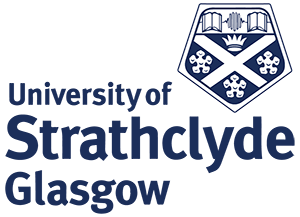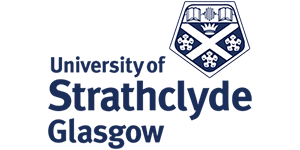International Specialised Diploma in
Business Management ( SCQF Level 8 )
Overview
The ISDC International Specialised Diploma in Business qualification has been credit rated by the National Qualifications Framework (NQF) of Scotland at Level 8 on the Scottish Credit and Qualifications Framework (SCQF) with 120 allocated SCQF credits. This enable students to progress to relevant undergraduate programmes of study in compliance with the entry requirements of individual universities in the UK with Credit Exemptions. In addition, the qualifications is at Level 5 of the European Qualifications Framework (EQF).
Level 8 is widely considered as the Second year of the Undergraduate study; Students are accepted for entering in to the Third Year of the Undergraduate Degree after the Level 8 completion.
Please see a link to the SCQF database form where you can access the ISDC qualification information https://scqf.org.uk/about-the-framework/scqf-database/ .
The SQA is the national awarding body in Scotland responsible for the development, accreditation, assessment, and certification and awarding of qualifications other than University Degrees. SQA was established by the Education (Scotland) Act 1996 which is an act of Parliament and as such is responsible to the Scottish Government.
As an internationally recognised awarding body many of the qualifications that are quality assured and certificated by SQA are accepted by UK and International Universities for advanced entry and/or credit transfer into Undergraduate and Postgraduate Programmes. Additionally, the UK University sector are important stakeholders of SQA who are integral to the development and validation of a range of SQA qualifications which can facilitate progression pathways to University
Entry Requirements
Entry to Level 8 qualification is open only to holders of the ISDC Level 7 qualification or other comparable UK awarded qualifications.
If you have achieved the required credits from an Indian university within the Last 5 years, in business-related subjects, your direct entry to Level 8 may be considered on a case to case basis.
Progression
Progression to a UK University Undergraduate Degree and Beyond – Progression to a UK University Undergraduate Degree and Beyond
Level 8 qualification provides a rewarding, affordable and faster progression route into a UK undergraduate degree. With progression arrangements with 12+ universities including the University of Essex, University of East London, University of Portsmouth, Oxford Brookes University across the UK, an SCQF Level 8 qualification from ISDC will ensure your direct entry into the final year of a BA/BSc Honours Degree. Upon successful graduation, the learner will be eligible to apply for a two-year Post Study Work Visa (as dictated under the current UK rules and regulations).
Note: Learners choosing to complete the UK awarded degree online will not qualify for a Post Study Work visa.
Programme Structure
In order to successfully complete Level 8, the learner must complete three core modules and choose any one of the Eight specifically career focussed pathways in accordance with their interests and aspirations. You will have to complete all four modules of the selected pathway along with the three core modules shown below.
| Core Modules | |
|---|---|
| Change Management | |
| Business Analytics for Decision Making | |
| Business and Professional Ethics | |
| Credits Awarded: 120 | |
Pathways
This specialisation is intended for students who want to pursue a career in finance. This programme will assist in developing the skills necessary to deal with complex accounting and financial management issues.
The programme will provide a deep-rooted Knowledge of Financial Analysis, Investment, Financing, and Distribution Decisions, as well as a thorough understanding of the Fintech Landscape, Trends, and how it is transforming Banking and Financial Services Industries.
| Module Title | SCQF Credits |
|---|---|
| Financial Strategy | 15 |
| Financial Reporting | 15 |
| Financial Modelling | 15 |
| Financial Technology | 15 |
The Human Resource Specialisation will focus on Assessing the Role of Human Resources in Modern Organisations, from Managing Organisational Behaviour to Strategies for Motivating Employees, and Systems for Developing and Retaining Talent. This pathway also focuses on individual and team developments that help in improving workforce performance.
Learners will also get an in-depth understanding of Leadership Theories, Leadership Styles, Team Work, The Attributes of Leaders and Organisational Culture.
| Module Title | SCQF Credits |
|---|---|
| Managing Organisational Behaviour | 15 |
| International Human Resource Development | 15 |
| Contemporary Employment Relations | 15 |
| Leadership – Theory & Practice | 15 |
A specialisation in Marketing Management is designed for learners who aspire to be Marketing Professionals. This pathway will enable you to understand the complexities of the Contemporary Marketplace and Global Marketing Strategies that will help them in Strategic and Tactical Decision Making. Through exploring the current trends in Digital Marketing Strategies and Social Media Analytics, this advanced pathway aims to develop Social Media Analytics Skills through the application of Statistical Procedures and Data Analysis, with the goal of making Data-Driven Decisions.
| Module Title | SCQF Credits |
|---|---|
| Brand Management | 15 |
| Social Media Analytics | 15 |
| Digital Marketing | 15 |
| Global Marketing Strategy | 15 |
This pathway is specifically designed for future business managers or entrepreneurs who aspire to gain a deeper comprehension of the International Business Environment. The pathway enables the learner to explore how an organisation, particularly an SME, can expand internationally and market its products or services by taking advantage of the advancing Digital Technology and changes in entry barriers into international markets.
This pathway focuses on specialised knowledge of International Marketing and the Human Resource Environment.
| Module Title | SCQF Credits |
|---|---|
| Entrepreneurship, Innovation and Commercialisation | 15 |
| Entering New International Business Markets | 15 |
| International Human Resource Development | 15 |
| Global Marketing Strategy | 15 |
This specialisation is designed for learners who want to advance their careers in the Tourism and Hospitality industries. The pathway explores the current trends and issues of the tourism and hospitality business and how they can be used to appraise, design, implement, and evaluate future-oriented plans for interacting with competitive environments.
The programme enables students to understand the significance of customer relations and customer experience industries and to develop skills to analyse the key factors that contribute to customer service excellence. This pathway also encourages learners to develop an appreciation for the need for constant change and development in the industry in order to meet external demands and uncertainty or respond to events or phenomena that have or are radically impacting the industry.
| Module Title | SCQF Credits |
|---|---|
| The Contemporary Tourism and Hospitality Industry | 15 |
| Operations Management in Tourism and Hospitality | 15 |
| Managing the Customer Experience and Customer Relations | 15 |
| Emerging Challenges in Tourism and Hospitality | 15 |
This specialisation is aimed at learners who want to explore the healthcare industry by acquiring practical experience in the domain of healthcare. The pathway is also open to learners from business disciplines who aim to work in a management capacity in the healthcare industry and who want to take on managerial and leadership roles.
The Healthcare Management Pathway pathway aims at developing managerial and leadership skills within the healthcare sector. It covers the managerial operations and services in healthcare facilities including an in-depth knowledge and understanding of healthcare governance and quality management. The pathway also includes an in-depth understanding and application of team building theories, team performance, shared goals, objectives and team’s challenges. Hence, enable learners to develop the necessary knowledge & skills required to lead in a healthcare environment.
| Module Title | SCQF Credits |
|---|---|
| Human Resource Management in Healthcare | 15 |
| Process and Operations Management in Healthcare | 15 |
| Quality Control and Improvement Management in Healthcare | 15 |
| Service Users and Client Management | 15 |
This specialisation is designed for learners who want to explore the role of Project Management in improving organisational performance by developing project management skills consistent with the current principles and practices. It will assist the learner in discovering the best project management skills and advancing career prospects.
The module on project management will help in recognising issues in a realistic project scenario, a systematic and thorough introduction to all aspects of project management and the importance of understanding the relationship between projects and the strategic goals of an organisation. The programme will help the learners to enhance their ability to Plan and Manage Resources, Time, People, Quality and Communications.
| Module Title | SCQF Credits |
|---|---|
| Principles of Project Management | 15 |
| Project Planning | 15 |
| Project Financing and Risk Management | 15 |
| Project Quality Management | 15 |
The General Business Management pathway necessitates a wide grasp of the business world, including marketing, sales, accounting, human resources, finance, and logistics, as well as the ability to lead teams, motivate employees, produce revenue, and reduce costs.
The specialisation is developed to show current challenges, opportunities, and management practises while also providing integrated learning. The General Business Management pathway will equip the learners with critical insights and allow them to advance to positions of leadership.
| Module Title | SCQF Credits | Module Status |
|---|---|---|
| Financial Strategy | 15 | Specialised |
| Leadership Theory and Practice | 15 | Specialised |
| International Human Resource Development | 15 | Specialised |
| Global Marketing Strategy | 15 | Specialised |
| Principles of Project Management | 15 | Specialised |
| Entering into New International Business Markets | 15 | Specialised |
Fees & Funding
International Specialised Diploma in Business Management (SCQF Level 8) : £1250*
*This fees is fully inclusive of all costs, including all teaching materials, core textbooks & assessments.
Progression Opportunities
Undergraduate Diploma in Business Management from ISDC will enable you to gain direct entry into the final year of a UK Bachelor’s Degree Programme.*
Upon successful graduation, the learner will be eligible to apply for a two-year Post Study Work Visa (as dictated under the current UK rules and regulations).
Note: Learners choosing to complete the UK awarded degree online will not qualify for a Post Study Work Visa.
| Programmes Offered | ISDC Qualification and Pathway required for Progression Requirements | Online Y/N | Face To Face Y/N | Entry Year |
|---|---|---|---|---|
| BA (Hons) Business | Completion of ISDC Level 7 & Level 8 – Any Pathway | Yes | No | 3rd Year |
| BA (Hons) Professional Studies | Completion of ISDC Level 7 & Level 8 – Any Pathway | Yes | No | 3rd Year |
| Programmes Offered | ISDC Qualification and Pathway required for Progression Requirements | Online Y/N | Face To Face Y/N | Entry Year |
|---|---|---|---|---|
| BA Hons Hospitality and Tourism Management | Level 8 Specialised Diploma Tourism and Hospitality Management Pathway | No | Yes | 3rd Year |
| BA Hons Marketing | Level 8 Specialised Diploma Marketing Management Pathway | No | Yes | 3rd Year |
| BA Hons Finance | Level 8 Specialised Diploma Accounting and Finance Pathway | No | Yes | 2nd Year |
| Programmes Offered | ISDC Qualification and Pathway required for Progression Requirements | Online Y/N | Face To Face Y/N | Entry Year |
|---|---|---|---|---|
| BA (Hons) Business and Management (Top-Up) | Completion of ISDC Level 7 & Level 8 – Any Pathway | Yes | No | 3rd Year |
| BA (Hons) Business & Marketing | Completion of ISDC Level 7 & Level 8 – Any Pathway | Yes | No | 3rd Year |
| Programmes Offered | ISDC Qualification and Pathway required for Progression Requirements | Online Y/N | Face To Face Y/N | Entry Year |
|---|---|---|---|---|
| BA(Hons) Accountancy | Completion of ISDC Level 7 & Level 8 with Accounting and Finance Pathway | No | Yes | 3rd Year |
| BA(Hons) International Tourism and Events Management | Completion of ISDC Level 7 & Level 8 with Tourism and Hospitality Pathway | No | Yes | 3rd Year |
| BA(Hons) International Business | Completion of ISDC Level 7 & Level 8 with International Business Pathway | No | Yes | 3rd Year |
| BA(Hons) Business Management | Completion of ISDC Level 7 & Level 8 with Business Management Pathway | No | Yes | 3rd Year |
| BA(Hons) International Supply Chain and Operations Management | Completion of ISDC Level 7 & Level 8 with Business Management Pathway | No | Yes | 3rd Year |
| BA(Hons) Risk Management | Completion of ISDC Level 7 & Level 8 with Business Management Pathway | No | Yes | 3rd Year |
| BA(Hons) International Business with HRM | Completion of ISDC Level 7 & Level 8 with Human Resource Management Pathway | No | Yes | 3rd Year |
| BA(Hons) International Marketing | Completion of ISDC Level 7 & Level 8 with Marketing Management Pathway | No | Yes | 3rd Year |
| Programmes Offered | ISDC Qualification and Pathway required for Progression Requirements | Online Y/N | Face To Face Y/N | Entry Year |
|---|---|---|---|---|
| BSc (Hons) International Business Management (Top Up) | Completion of ISDC Level 7 & Level 8 with Project Management Pathway | No | Yes | 3rd Year with bridging modules |
| Programmes Offered | ISDC Qualification and Pathway required for Progression Requirements | Online Y/N | Face To Face Y/N | Entry Year |
|---|---|---|---|---|
| BSc General Business Management | Completion of ISDC Level 7 & Level 8 – Any Pathway | No | Yes | 3rd Year |
| BSc Human Resource Management | Completion of ISDC Level 7 & Level 8 – Any Pathway | No | Yes | 3rd Year |
| BSc Marketing Management | Completion of ISDC Level 7 & Level 8 – Any Pathway | No | Yes | 3rd Year |
| BSc International Business | Completion of ISDC Level 7 & Level 8 – Any Pathway | No | Yes | 3rd Year |
| Programmes Offered | ISDC Qualification and Pathway required for Progression Requirements | Online Y/N | Face To Face Y/N | Entry Year |
|---|---|---|---|---|
| BA Business Management (General) and (Enterprise) | Completion of ISDC Level 7 & Level 8 with General Business Pathway | No | Yes | 3rd Year |
| BA Business Management (Marketing) | Completion of ISDC Level 7 & Level 8 with General Business Pathway | No | Yes | 3rd Year |
| BA Business Management (Finance) | Completion of ISDC Level 7 & Level 8 with General Business (without Principles of Project Management) | No | Yes | 3rd Year |
| BA Business Management (General) | Completion of ISDC Level 7 & Level 8 with Accounting and Finance | No | Yes | 3rd Year |
| BA Business Management (Finance) | Completion of ISDC Level 7 & Level 8 with Accounting and Finance Pathway | No | Yes | 3rd Year |
| All BA Business Management routes | Completion of ISDC Level 7 & Level 8 with Human Resource Management | No | Yes | 3rd Year |
| BA Business Management (General) and (Enterprise) | Completion of ISDC Level 7 & Level 8 with Marketing Management Pathway | No | Yes | 3rd Year |
| BA Business Management (Marketing) | Completion of ISDC Level 7 & Level 8 with Marketing Management Pathway | No | Yes | 3rd Year |
| BA Business Management (Finance) | Completion of ISDC Level 7 & Level 8 with Marketing Management Pathway | No | Yes | 3rd Year |
| All BA Business Management routes | Completion of ISDC Level 7 & Level 8 with International Business Management Pathway | No | Yes | 3rd Year |
Are You Ready To Start?
Still Have Queries ?
Please fill in the form and an expert from the admissions office will call you soon.



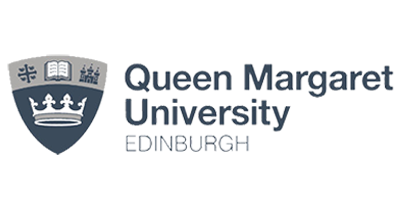
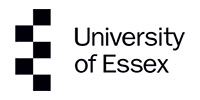
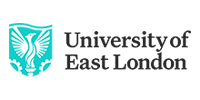


















 Ranked 35th by the Complete University Guide-University Ranking, UK, the University of Strathclyde is a leading international technological university based in the centre of Glasgow. Inspired by the founding principle as ‘a place of useful learning’, the university's mission is to make a positive difference in the lives of their students, to society and the world. The university's excellence in research is evidenced by its position amongst the UK’s top 20 research-intensive universities, according to the Times Higher Education’s analysis of REF2014, and by the growth in range and scale of our research collaborations. Strathclyde was named the Times Higher Education UK University of the Year 2019, the Sunday Times Good University Guide Scottish University of the Year 2020 and was awarded the Queen’s Anniversary Prize for Higher and Further Education for its excellence in energy innovation.
Ranked 35th by the Complete University Guide-University Ranking, UK, the University of Strathclyde is a leading international technological university based in the centre of Glasgow. Inspired by the founding principle as ‘a place of useful learning’, the university's mission is to make a positive difference in the lives of their students, to society and the world. The university's excellence in research is evidenced by its position amongst the UK’s top 20 research-intensive universities, according to the Times Higher Education’s analysis of REF2014, and by the growth in range and scale of our research collaborations. Strathclyde was named the Times Higher Education UK University of the Year 2019, the Sunday Times Good University Guide Scottish University of the Year 2020 and was awarded the Queen’s Anniversary Prize for Higher and Further Education for its excellence in energy innovation. Ranked at 85th, the University of Essex is a public research university in Essex, England. Established in 1963 the university welcomed students in 1964 and acquired university status by Royal Charter in 1965. With 14,926 students, the University of Essex is a plate glass university and has been awarded the Queen's Anniversary Prize on two occasions for advancing Human Rights in 2009 and Social and Economic Research. The University is rated Gold for Teaching Excellence by the TEF and has been named the University of the Year at the Times Higher Education Awards.
Ranked at 85th, the University of Essex is a public research university in Essex, England. Established in 1963 the university welcomed students in 1964 and acquired university status by Royal Charter in 1965. With 14,926 students, the University of Essex is a plate glass university and has been awarded the Queen's Anniversary Prize on two occasions for advancing Human Rights in 2009 and Social and Economic Research. The University is rated Gold for Teaching Excellence by the TEF and has been named the University of the Year at the Times Higher Education Awards. Ranked at 69th, the Glasgow Caledonian University is a public university located in Glasgow. The records of the University dates back to 1875. The Queen's College, Glasgow in 1975 was formed from previous institutions which eventually merged with Glasgow Polytechnic to create the current Glasgow Caledonian University. Glasgow Caledonian University (GCU) has been recognised as a UK leader in championing social mobility and also the first university in Scotland to achieve EcoCampus Platinum certification for its environmental practices. With 17,000 students, the University has been formally recognised for its commitment to promoting gender equality by attaining the Equality Challenge Unit's prestigious Athena SWAN Institutional Bronze Award.
Ranked at 69th, the Glasgow Caledonian University is a public university located in Glasgow. The records of the University dates back to 1875. The Queen's College, Glasgow in 1975 was formed from previous institutions which eventually merged with Glasgow Polytechnic to create the current Glasgow Caledonian University. Glasgow Caledonian University (GCU) has been recognised as a UK leader in championing social mobility and also the first university in Scotland to achieve EcoCampus Platinum certification for its environmental practices. With 17,000 students, the University has been formally recognised for its commitment to promoting gender equality by attaining the Equality Challenge Unit's prestigious Athena SWAN Institutional Bronze Award. With a student population of 15,355, the University of East London(UEL) is a public university located in the London Borough of Newham, London. The university's roots can be traced back to 1892 when the West Ham Technical Institute was established. It gained university status in 1992. Ranked as the 'Best Modern University in London' by the National Student Survey, 2nd in the UK for Teaching Quality (Times Higher Education Young University Rankings) and in the world’s top 200 young universities (Times Higher Education Young University Rankings).
With a student population of 15,355, the University of East London(UEL) is a public university located in the London Borough of Newham, London. The university's roots can be traced back to 1892 when the West Ham Technical Institute was established. It gained university status in 1992. Ranked as the 'Best Modern University in London' by the National Student Survey, 2nd in the UK for Teaching Quality (Times Higher Education Young University Rankings) and in the world’s top 200 young universities (Times Higher Education Young University Rankings). Ranked at 75th, Bangor University is a public university in Bangor, Wales and has a student population of 9,945. The Bangor University received its Royal Charter in 1885 and was one of the founding institutions of the federal University of Wales, in 2007 it became Bangor University, independent from the University of Wales. The Research Excellence Framework has recognised that more than three-quarters of Bangor's research is either world-leading or internationally excellent. In 2017, Bangor University became the only university in Wales to be rated 'Gold' by the new Teaching Excellence Framework (TEF) which means that the university is deemed to be of the highest quality found in the UK.
Ranked at 75th, Bangor University is a public university in Bangor, Wales and has a student population of 9,945. The Bangor University received its Royal Charter in 1885 and was one of the founding institutions of the federal University of Wales, in 2007 it became Bangor University, independent from the University of Wales. The Research Excellence Framework has recognised that more than three-quarters of Bangor's research is either world-leading or internationally excellent. In 2017, Bangor University became the only university in Wales to be rated 'Gold' by the new Teaching Excellence Framework (TEF) which means that the university is deemed to be of the highest quality found in the UK. Ranked 65th the Queen Margaret University is in Edinburgh, Scotland and has a student population of 5,310. Formerly Queen Margaret University College and Queen Margaret College the university was founded in 1875, it was awarded full university status becoming Queen Margaret University in January 2007. The University has previously won the Times Higher Education Leadership and Management Team Award. QMU has also won the e-Government National Award 2010 in the category for sustainable, ‘green IT’ or ‘carbon-efficient’ services and a gold award at the Scottish Green Awards. In 2012, QMU became the first university in Scotland to have a Business Gateway on campus.
Ranked 65th the Queen Margaret University is in Edinburgh, Scotland and has a student population of 5,310. Formerly Queen Margaret University College and Queen Margaret College the university was founded in 1875, it was awarded full university status becoming Queen Margaret University in January 2007. The University has previously won the Times Higher Education Leadership and Management Team Award. QMU has also won the e-Government National Award 2010 in the category for sustainable, ‘green IT’ or ‘carbon-efficient’ services and a gold award at the Scottish Green Awards. In 2012, QMU became the first university in Scotland to have a Business Gateway on campus.








